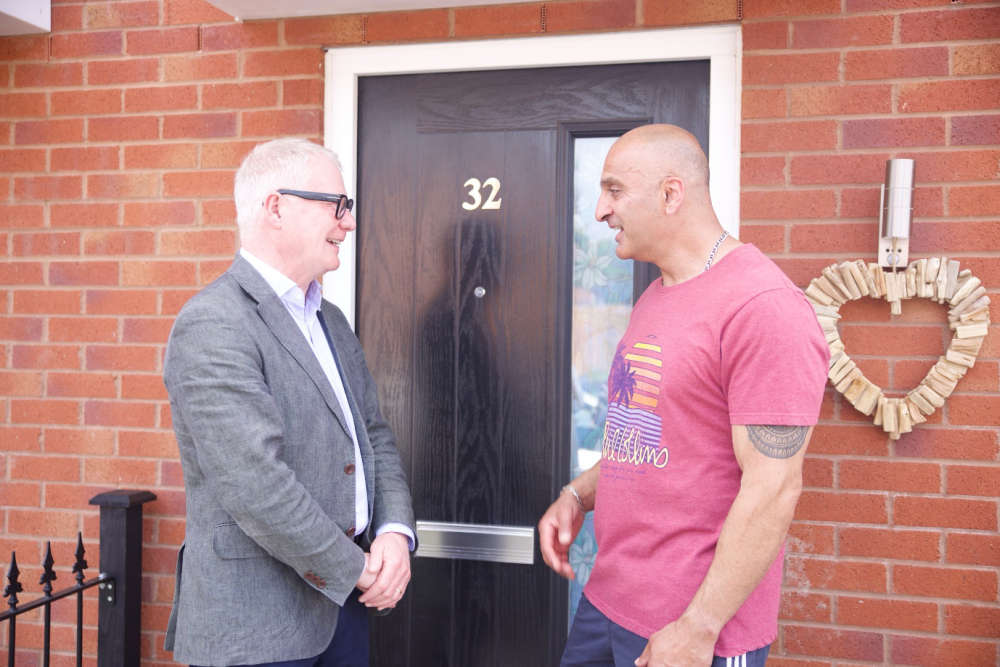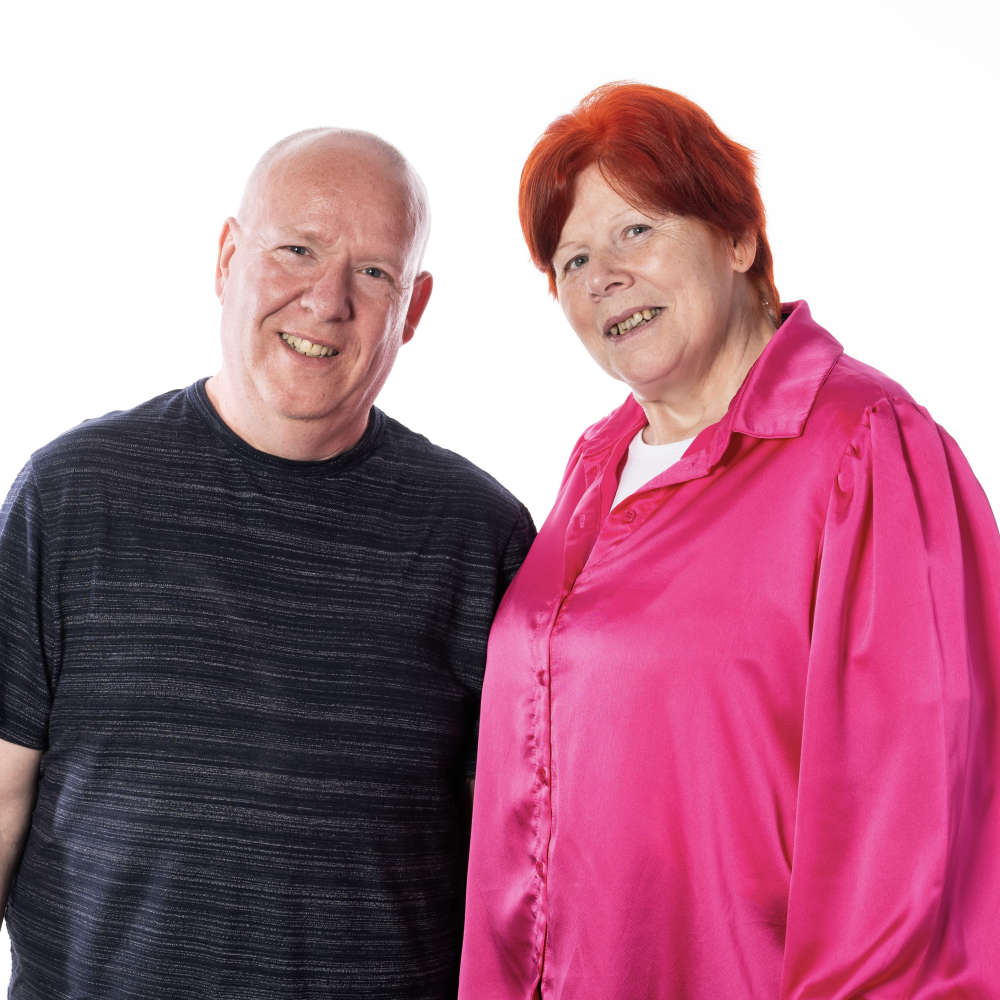
Black Country families struggling to afford a decent home of their own have been handed the keys to a brand new, energy efficient property thanks to a £1 million investment by the West Midlands Combined Authority.
Residents have started moving into their new homes, on the site of the former Cookley Works steel factory in Brierley Hill, after developer Lovell completed construction work and passed the properties to Platform Housing Group.
All 71 homes, which have been built on the five-acre site off Leys Road, are classed as affordable, with half the homes being offered by Platform at affordable rents and half under an affordable shared ownership scheme.
Two of the new residents, Tag and Justine Majid, who run an automotive business, have recently moved into one of the shared ownership homes on the development.
Tag, aged 52, said: “It was impossible to get a mortgage because we were self-employed and because of our age.
"We were having to pay £1,000 a month in private rent for a property that was riddled with mould and damp. It was so bad we couldn’t live there any longer and ended up living in a caravan for three months.
Richard Parker, Mayor of the West Midlands and Chair of the WMCA, met with with Tag and Justine and other residents during a tour of the new development.
The Mayor also welcomed Housing Secretary Angela Rayner’s announcement this week of an overhaul of the country’s planning rules to help deliver the Government’s target of 1.5 million new homes by 2029.
“This is great news for those struggling to afford a decent home, especially the 60,000 people in our region on the housing waiting list and the 20,000 families living in temporary accommodation,” he said.
Cookley Works had stood derelict since the last business based there closed in 2007, ending more than 150 years of steel industry on the site. The landowners at the time, Tata Steel, sold the site to Lovell for £4.5 million.
The WMCA’s investment was used to unlock the site for housing by cleaning up the land and making it suitable for redevelopment.
The scheme is part of the WMCA’s ‘brownfield first’ approach to housing, which targets former industrial sites and vacant urban plots for new developments, helping to drive local regeneration.
Elizabeth Froude, CEO of Platform Housing Group, said: “We are appreciative of the Mayor’s time today, as it is important those making policy decisions get the opportunity to hear from our residents about the impact all affordable housing tenures can have to improve their quality of life.
Cllr Patrick Harley, leader of Dudley Council, said: “As an authority that has made a clear commitment on the use of brownfield sites first, I welcome the development on the old Cookley Works.
“This is exactly the kind of approach we need from developers as we look for land for housing and employment opportunities in our borough.”
More than £100 million of WMCA brownfield funding is still available to developers who share the region’s ambition to transform more brownfield sites into high quality, inclusive communities with genuinely affordable homes at their heart.
The high cost of cleaning up former industrial sites often makes them financially unviable for developers and as a result many have remained derelict for decades. By using funds secured from government, the WMCA has continued to work with developers to unlock dozens of such sites for new homes.
In return, developers must meet certain design standards and make a minimum 20% of the homes affordable.
In 2020, the West Midlands was also the first region in the UK to adopt a localised definition of affordable housing linked to real world local incomes rather than property prices. The definition states that people should not pay more than a third of their income on mortgages or rent.
The Mayor said: “Listening to the previous experiences of those who have moved into these new homes, shows how the current housing crisis is blighting lives and holding people back.
“Cookley Works is a great example of how the public and private sectors can work together to provide good quality housing that is genuinely affordable, but we need to do so much more if we are going to change more lives for the better.
“Too many people have no choice but to pay sky high rents for poor quality housing simply because there are not enough social and affordable homes being built or protected.
“That’s why I am talking with government about loosening our funding straitjacket and giving us greater flexibility in how we can use our existing multi-million-pound housing war chest.
“We want to use that money to support schemes that can deliver more social and affordable homes for those communities that need them most. This way we can begin to fix the housing crisis.”
“I can’t describe how getting this house has changed our lives – we thought we would never be able to get a home of our own.”














Comments
Add a comment